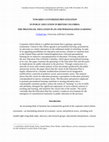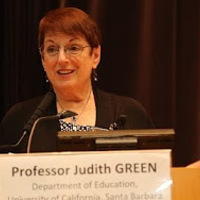Articles by Vicheth Sen

Tourism Recreation Research , 2020
Ecotourism seldom places humans within the natural environments which serve as ecotourism attract... more Ecotourism seldom places humans within the natural environments which serve as ecotourism attractions. Scholarship on learning and education in ecotourism has accordingly focused mostly on visitor learning about wildlife, biodiversity and adventure experiences in ‘pristine’ natural ecosystems. By contrast, community-based ecotourism (CBE) involves local and Indigenous communities living within natural environments. CBE aims not only to preserve natural environments, but also to conserve the traditional cultures of the peoples living within them. CBE involves visitors in longer term village homestays, local guides, and environmental, livelihood and cultural learning. It has also recently become an important area of study. However, while learning by CBE homestay hosts and guides is equally important, it is mostly unstudied to date. This paper reports on an empirical, interpretive case study of the transformative learning of CBE hosts in a rainforest-based CBE project in Chambok, Cambodia. Findings show that CBE hosts experienced transformations in their worldviews and self-identities in relation to three areas of transformative learning: environmental conservation, gender roles and local culture. These are three areas of learning beneficial to both hosts and communities, and key to the success of CBE. As such, they might well be encouraged in other CBE projects.

Journal of Educational Administration and History , 2019
K-12 public education finance policy in the province of British Columbia, Canada, responsibilises... more K-12 public education finance policy in the province of British Columbia, Canada, responsibilises school district administrators to engage in competitive entrepreneurial practices, not only to increase public funding, but also to generate supplementary funding from private sources. We focus specifically on the generation of revenue from international student tuition. Our goal is to deepen our understanding of the spatial dimensions of inequities within the context of marketised education finance using the conceptual framework of spatiality and a mixed-methods approach to data collection. Quantitative data demonstrate how the amount of revenue generated from international student tuition differs between geographically diverse school districts. Qualitative data illuminate how the spatial contexts of local school districts shape administrators’ reasoning, decision making, and marketing practices within a marketised education finance system. Both sets of data illustrate how spatiality exacerbates inequities within a market-oriented approach to education finance.

Asia Pacific Journal of Tourism Research, 2018
Tourism visits to Cambodia have expanded rapidly, with over 5 million visitors arriving in the co... more Tourism visits to Cambodia have expanded rapidly, with over 5 million visitors arriving in the country by 2016. Angkor Wat remains the primary tourist attraction, but increasing numbers of tourists also visit ecotourism destinations. This study draws on Weaver’s [(2002). Asian ecotourism: Patterns and themes. Tourism Geographies, 4(2), 153–172] spatial and structural analysis of ecotourism in Asia as an organizing framework to develop a geography of ecotourism in Cambodia. In a comprehensive review of academic publications, reports, online ecotourism clearinghouses, and project websites, 30 Cambodian ecotourism sites were identified based on 5 ecotourism criteria. A content analysis of ecotourism project websites was then conducted to group together ecotourism sites with common characteristics in particular geographic regions. Each site was plotted on a Google Terrain map, and local and regional terrain, land cover, transport, and other physical features were analyzed, supplemented by detailed geographical data from Google Panorama, Earth, and Satellite map functions. Three relatively distinct ecotourism regions were identified: the (a) mangrove and rainforest region, (b) highland trekking region, and (c) wetlands and waterways region. For each region, tourism gateways and ecotourism development challenges and potentials are elaborated. The paper concludes with a discussion of study findings and their implications for ecotourism development in Cambodia.
Studies in Higher Education, 2017
This paper examines the kinds of higher education policy discourses embedded in major Cambodian h... more This paper examines the kinds of higher education policy discourses embedded in major Cambodian higher education policy texts related to educational reform efforts undertaken by the government. The focus is on post-conflict Cambodia, that is, Cambodia since 1993 when the first national elections were organized after more than two decades of armed civil conflict. The paper argues that higher education policymaking in post-conflict Cambodia can be conceptualized as a new form of ‘hybrid governmentality’. In this hybrid form, the government draws on policy discourses associated with modern, liberal democracy to legitimize its existence. At the same time, it continues to insert its own discourses rooted in Cambodia’s traditional socio-cultural hierarchical order, unstable political frameworks, and legacies of prolonged civil upheaval.

Canadian Journal of Educational Administration and Policy, 2016
Corporate school reform is a global movement that is gaining a growing momentum. Central to this ... more Corporate school reform is a global movement that is gaining a growing momentum. Central to this reform agenda is personalized learning, presented by its advocates as a better alternative to the traditional model of schooling. In spite of its appealing possibilities for education and society, scholars in countries such as the United States and the United Kingdom have criticized personalized learning for its reductive conceptualization of education. Focusing critically on the new Education Plan of British Columbia, which places personalized learning at its core, this paper examines the genealogy of the Education Plan and discusses its implications for public education in the province. Through construction of a network of actors and content analysis of key documents produced by the public and private sectors, the paper shows that the vision of the Education Plan is largely influenced by a broader neoliberalism-oriented social imagination reinforced by a network of political, social, and economic actors. The analysis shows that this vision for education promotes a perception of education primarily conceptualized in narrow economic terms. The discourse and practice employed to promote personalized learning contribute to turning education into a customizable consumer product, reduce the notion of " learning " to a list of skills and attributes, disregard the significant importance of socio-cultural contexts in teaching and learning, and minimize the crucial role of the teacher. The article concludes that the Education Plan has created a conducive environment for the emergence of customized privatization in public education in the province.
Canadian Journal of Educational Administration and Policy, 2016
Multiple forms of privatization are emerging in the Canadian public sector, including public–priv... more Multiple forms of privatization are emerging in the Canadian public sector, including public–private partnerships. This article focuses on one approach to public–private partnerships called “social finance,” and a network of public, private, and not-for-profit organizations that promotes social finance as a means of funding public services, including education. The authors employ social network analysis to identify key members of this network, and critical discourse analysis to examine the discourse the network produces. Findings reveal a number of discursive and extra-discursive practices the network uses that legitimize social finance approaches to funding public services. These practices manufacture consent for increased privatization in the public sphere, and this has important implications for public education.
Cambodia Development Resource Institute (CDRI)
Cambodia Development Resource Institute (CDRI)
The Khmer Rouge regime and its genocidal aftermath have left a psychological legacy that has crip... more The Khmer Rouge regime and its genocidal aftermath have left a psychological legacy that has crippled the development of Cambodia. The Khmer Rouge regime collapsed almost three decades ago; however, the lack of a healing process for the victims of the trauma, the erosion of trust initiated by the regime, and the delayed establishment of the Khmer Rouge Tribunal and the public distrust in the hybrid court, have still trapped the victims in the past trauma, which prevents them from letting go of their past traumatic experiences to fully contribute to the development of Cambodia.
Books by Vicheth Sen
Institute of Southeast Asian Studies, Sep 15, 2011
Book chapters by Vicheth Sen
Drawing on Young's (2009) framework on difficulties during the implementation of qualifications f... more Drawing on Young's (2009) framework on difficulties during the implementation of qualifications frameworks, this contribution compares the difficulties of implementation in Cambodia and Germany. The main problem in Germany is translating the framework into practice at the professional level, whereas in Cambodia, implementation is being hampered by fragmentation and competition among the involved ministries and institutions.
Working papers by Vicheth Sen
Cambodia Development Resource Institute (CDRI)
Media by Vicheth Sen
Effective and Accountable? There were 168 essays submitted. Four won prizes and 22 were selected ... more Effective and Accountable? There were 168 essays submitted. Four won prizes and 22 were selected for certificate recognition. To share the flavor of what the essays were about, the World Bank newsletter publishes in its entirety the essay that won First Prize. It was written by Mr. CHAN Rotha, Mr. OU Sivhuoch, Mr. SEN Vicheth, Mr. SOK Say, and Mr. SOM Ratana. Mr Chan Rotha reads the winning essay at the PECSA
Papers by Vicheth Sen

core, this paper examines the genealogy of the Education Plan and discusses its implications for ... more core, this paper examines the genealogy of the Education Plan and discusses its implications for public education in the province. Through construction of a network of actors and content analysis of key documents produced by the public and private sectors, the paper shows that the vision of the Education Plan is largely influenced by a broader neoliberalism-oriented social imagination reinforced by a network of political, social, and economic actors. The analysis shows that this vision for education promotes a perception of education primarily conceptualized in narrow economic terms. The discourse and practice employed to promote personalized learning contribute to turning education into a customizable consumer product, reduce the notion of "learning" to a list of skills and attributes, disregard the significant importance of socio-cultural contexts in teaching and learning, and minimize the crucial role of the teacher. The article concludes that the Education Plan has created a conducive environment for the emergence of customized privatization in public education in the province.
.................................................................................................... more ....................................................................................................................................v Section











Uploads
Articles by Vicheth Sen
Books by Vicheth Sen
Book chapters by Vicheth Sen
Working papers by Vicheth Sen
Media by Vicheth Sen
Papers by Vicheth Sen